JournalismPakistan.com | Published December 31, 2016
Join our WhatsApp channel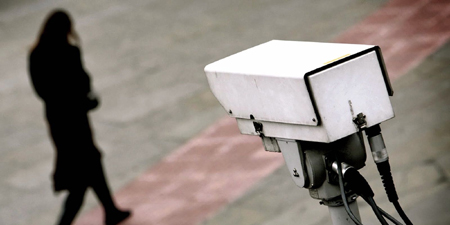
ISLAMABAD - The Digital Rights Foundation (DRF) has announced the release of its research titled “Surveillance of Female Journalists in Pakistan”, a pilot study that explores the gendered surveillance that female journalists experience.
The study details the experiences of seven female journalists and the surveillance that they face in the course of their work and beyond. The research focuses on the gendered forms and the different sources of surveillance, including the state, audience members and political groups.
The female journalists interviewed for the study stated that not only were they surveilled by state authorities, but are also subjected to constant social surveillance in the form of abuse on social media - largely directed at their gender and appearance, rather than their work. In addition to mapping the forms of surveillance faced by female journalists, the report also explores the impact that this constant monitoring has, in terms of the psychological toll, self-censorship and retreat from digital spaces.
Nighat Dad, the Founder and Executive Director of Digital Rights Foundation, said that this is an important conversation to have because “gendered surveillance is a free speech issue - it lets women know that they are being monitored, and discourages them from reporting and participating in digital spaces”. The journalists who participated in the research also talked about the toll surveillance can take on their professional and personal lives.
Saba Eitizaz felt that social surveillance online has often had “a tremendous psychological effect [and] I felt violated”. In her experience, said Kiran Nazish, “it’s not just one person telling you that you don’t belong here, it’s a number of people and that constant refrain can be very intimidating and one starts to feel cornered”. The extent of surveillance is so pervasive for journalists that Maria Memon told DRF that “even if I was told that I could tweet about anything without repercussions, I don’t think I would still do it because I don’t think that surveillance is completely avoidable”.
The research aims to add to the conversation around free speech, freedom of the press, surveillance and gender. DRF also aims to mainstream the idea of social surveillance as part of the definition of surveillance - where surveillance is not only carried out by the state, but also by social non-state actors.
Digital Rights Foundation is a research and advocacy based NGO that works on issues of surveillance, privacy, internet governance and online harassment.
Main findings of the study
The report finds, based on qualitative interviews with female journalists working in Pakistan, that the experience of surveillance for female journalists is gendered and is thus different from their male counterparts. While there is no conclusive evidence of whether women face more surveillance, the form that the surveillance takes is in the form of sexualized threats, attacks on character and appearance. This gendered form of surveillance is true for both state and social surveillance. Female journalists were chosen as subjects of this pilot study based on their unique position since journalists have increased visibility in both online and offline spaces.
Through our interviews, DRF identified two main sources of surveillance experienced by female journalists in Pakistan. The first form of surveillance is by the state, government institutions and intelligence agencies. State surveillance is troubling given that it is backed by state machinery which makes for effective, systematic and efficient monitoring. On the other hand, social surveillance, experienced by all the journalists we interviewed, is carried out by the audience, political parties, non-state actors, fellow journalists and personal contacts. Some journalists reported that they experienced more social surveillance than by the state. Thus, it is particularly important to mainstream a definition of surveillance that not only includes state surveillance, but social surveillance as well. DRF observes that the traditional definition of surveillance excludes and silences female experiences of social surveillance.
While some female journalists said that they had not experienced overt government surveillance or monitoring, they had, on the other hand, experienced a lot of social surveillance. Online social surveillance takes on a particularly gendered form and the harassment is often specifically geared towards the person’s sexuality, appearance and character.
Many of female journalists observed that when it comes to controversial topics, both female and male journalists face equal levels of surveillance, however the form of surveillance tends to be gendered. In the experience of some journalists, when the state is attempting to intimidate or discourage them from publishing or reporting particular materials, they often employ sexualized threats or the possibility of revealing facts about their personal lives.
The report also finds that surveillance has a profound psychological impact on female journalists, leaving them paranoid and at times traumatized. Furthermore, many of the journalists said they were guarded about what they said online for fear of surveillance and thus had to self-censor their opinions, and at times their reporting.
DRF found that both the state and media houses need to take concrete steps towards protecting female journalists from the particular kinds of gendered surveillance that they experience. There is a need to identify social surveillance as a serious issue so that steps can be taken to control it and to support journalists who face it on a daily basis. - A DRF media release/Image: Privacy International

June 11, 2025: Pakistan celebrated a narrow win over Bangladesh, but beneath the jubilation lies a deeper crisis—from sidelined veterans to a collapsing domestic structure—signaling an urgent need for cricket reform.
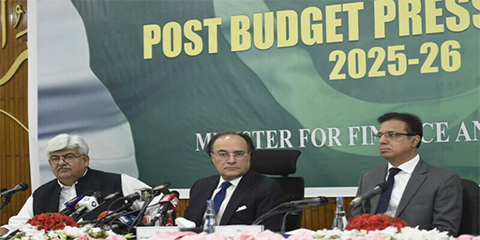
June 11, 2025: Journalists walked out of the post-budget press conference in Islamabad to protest the absence of a technical briefing and the government's dismissive behavior, calling it unacceptable and intolerable.
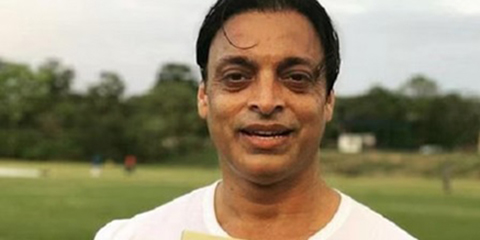
May 31, 2025: Dr. Nauman Niaz has issued a defamation notice to Shoaib Akhtar over derogatory remarks made during a recent broadcast, reigniting a longstanding media feud between the two prominent figures in Pakistan.

May 30, 2025: The Human Rights Commission of Pakistan has demanded the full repeal of PECA, citing its vague language, coercive powers, and threats to free speech and digital rights in Pakistan.
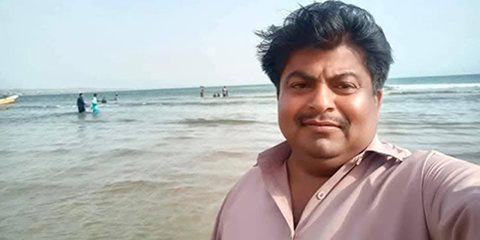
May 30, 2025: The Pakistan Federal Union of Journalists (PFUJ) has condemned the murder of journalist Syed Mohammed Shah in Jacobabad, calling for urgent justice and improved safety for media professionals in Sindh.

May 26, 2025: In Rawalpindi, police allegedly side with Jang Group to block 66 reinstated employees from resuming work despite court orders, drawing sharp criticism from unions and press freedom advocates.

May 25, 2025: PFUJ condemns the Jang Group's decision to dismiss over 80 employees in Rawalpindi, calling it an 'economic massacre.' The union warns of nationwide protests if workers are not reinstated.
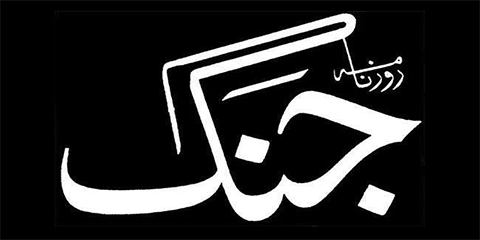
May 25, 2025: Daily Jang Rawalpindi has terminated over 80 employees, including female staff, despite multiple court rulings in their favor—raising concerns over labor rights violations and misuse of authority in Pakistani media.

May 19, 2025 PJS reports 219 Palestinian journalists killed in Israeli attacks since October 7, with 30 women among the victims. Over 430 were injured and 685 family members were killed. Read more on the systematic targeting of media in Gaza.

May 15, 2025 Discover the legacy of Samiullah Khan, Pakistan’s legendary "Flying Horse," whose breathtaking speed and artistry redefined hockey. From Olympic glory to World Cup triumphs, his story is one of myth, movement, and magic.
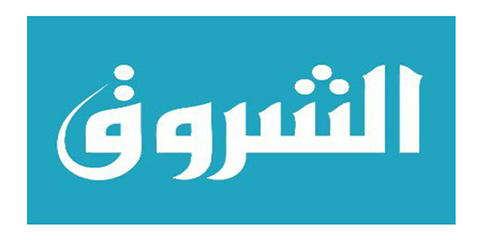
May 04, 2025 Algerian authorities suspend Echorouk News TV for 10 days after it used a racist slur against African migrants. ANIRA demands an apology, calling it a violation of human dignity.

May 04, 2025 NCHR and MMfD launch a journalism fellowship to train reporters on digital rights & gender inclusion in Pakistan. Supported by UNESCO, this initiative aims to bridge the gender digital divide. Apply by May 15, 2025!
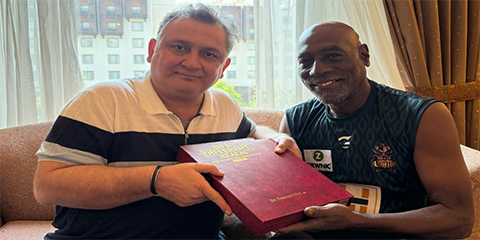
April 23, 2025 Discover Dr. Nauman Niaz’s In A Different Realm: Story of Quadruple & Triple Centuries 1876–2025, a profound exploration of cricket's most monumental innings, blending historical analysis with poetic narrative.